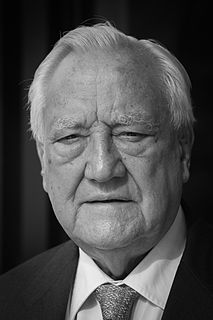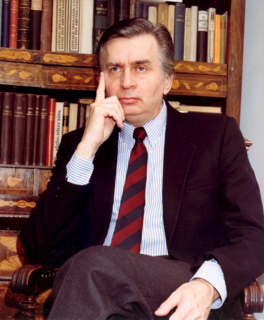The politics of Croatia are defined by a parliamentary, representative democratic republic framework, where the Prime Minister of Croatia is the head of government in a multi-party system. Executive power is exercised by the Government and the President of Croatia. Legislative power is vested in the Croatian Parliament. The Judiciary is independent of the executive and the legislature. The parliament adopted the current Constitution of Croatia on 22 December 1990 and decided to declare independence from Yugoslavia on 25 May 1991. The Constitutional Decision on the Sovereignty and Independence of the Republic of Croatia came into effect on 8 October 1991. The constitution has since been amended several times. The first modern parties in the country developed in the middle of the 19th century, and their agenda and appeal changed, reflecting major social changes, such as the breakup of Austria-Hungary, the Kingdom of Serbs, Croats and Slovenes, dictatorship and social upheavals in the kingdom, World War II, the establishment of Communist rule and the breakup of the SFR Yugoslavia.
Cuba has had a communist political system since 1959 based on the "one state – one party" principle. Cuba is constitutionally defined as a Marxist–Leninist socialist state guided by the political ideas of Karl Marx, one of the fathers of historical materialism, Friedrich Engels and Vladimir Lenin. The present Constitution also ascribes the role of the Communist Party of Cuba to be the "leading force of society and of the state" and as such has the capability of setting national policy. The most recent leader was Raúl Castro, who held the title of First Secretary of the Communist Party of Cuba. As of 2018 Miguel Díaz-Canel is now the president of Cuba.

The Croatian Parliament or the Sabor is the unicameral representative body of the citizens of the Republic of Croatia; it is Croatia's legislature. Under the terms of the Croatian Constitution, the Sabor represents the people and is vested with legislative power. The Sabor is composed of 151 members elected to a four-year term on the basis of direct, universal and equal suffrage by secret ballot. Seats are allocated according to the Croatian Parliament electoral districts: 140 members of the parliament are elected in multi-seat constituencies, 8 from the minorities and 3 from the Croatian diaspora. The Sabor is presided over by a Speaker, who is assisted by at least one deputy speaker.

Christian Poncelet is a conservative French politician. A member of President Nicolas Sarkozy's Union for a Popular Movement (UMP), he was President of the Senate from 1998 to 2008. In addition to being a Senator, he was Mayor of Remiremont (Vosges) and has been the President of the General Council of Vosges.

Elections in Gabon take place within the framework of a presidential multi-party democracy with the Gabonese Democratic Party, in power since independence, as the dominant party. The President and National Assembly are directly elected, whilst the Senate is indirectly elected.

Elections in Cuba involve nomination of municipal candidates by voters in nomination assemblies, nomination of provincial and national candidates by candidacy commissions, voting by secret ballot, and recall elections. Cuba is a one-party state with the Communist Party of Cuba as the "leading force of society and of the state" under the national constitution, although elections are nominally non-partisan.

The Azerbaijan Communist Party is a communist party in Azerbaijan. AKP was set up in 1993 by Ramiz Ahmadov and registered by the Justice Ministry in 1994.
Huguette Bello is a politician from Réunion and a member of the Reunionese Communist Party (PCR).

Municipal elections were held in France on 11 and 18 March 2001. These elections were marked by a setback for the left and a victory for the right one year before the 2002 presidential election. However, the capital, Paris and the second largest city, Lyon both switched to the left.

The 1990 Hungarian parliamentary elections were held in Hungary on 25 March 1990, with a second round of voting taking place in all but five single member constituencies on 8 April. They were the first completely free and competitive elections to be held in the country since 1945, and only the second free elections in the country's history. The conservative, nationalist Hungarian Democratic Forum (MDF) beat the liberal and more internationalist Alliance of Free Democrats, which had spearheaded opposition to Communist rule in 1989, to become the largest party in parliament. The Hungarian Socialist Party, the former Communist party, suffered a crushing defeat, winning only 33 seats for fourth place.

Local elections were held in Cuba on 21 October, 28 October and 31 October 2007. These elections are of national importance as they are the only direct elections in Cuba's political system, and because the municipal and provincial assemblies elect half the members of the National Assembly of People's Power, which in turn elects the President of Cuba. Therefore, this election will indirectly determine whether Fidel Castro will remain president or whether the vice-president and acting president Raúl Castro will officially take over.
Constitutional Assembly elections were held in Bulgaria on 10 June 1990, with a second round for eighteen seats on 17 June. They were the first elections held since the fall of Communism the previous winter, and the first free national elections since 1931. The elections were held to elect the 7th Grand National Assembly, tasked with adopting a new (democratic) constitution. The new electoral system was changed from 400 single-member constituencies used during the Communist era to a split system whereby half were elected in single member constituencies and half by proportional representation. The result was a victory for the Bulgarian Socialist Party, the freshly renamed Communist Party, which won 211 of the 400 seats. Voter turnout was 90.3%.

In Yugoslavia, elections were held while it had existed as the Kingdom of Yugoslavia, the first one being in 1918 for the Provisional Popular Legislature of Serbs, Croats and Slovenes and the last being the parliamentary election of 1938. Women were not eligible to vote. After the 1918 indirect ones, the 1920 parliamentary election was the first direct one. Parliamentary elections were held in 1923, 1925 and 1927, while with the new constitution a de facto Lower and Upper House were introduced in 1931. The 1931 elections were not free, as they were handled under a single-course dictatorship, while the 1935 and 1938 were held under limited basic democratic principles.
Indirect parliamentary elections were held in Cuba on 2 November 1976, the first since the Cuban Revolution.
Indirect parliamentary elections were held in Cuba on 27 November 1986.
This local electoral calendar for 2016 lists the subnational elections held in 2016 in the de jure and de facto sovereign states. By-elections and sub-national referenda are also included.

Parliamentary elections were held in Vietnam on 22 May 2016. The members of the National Assembly, which would subsequently appoint the Prime Minister, and deputies of People's Councils at all levels were to be elected.

Parliamentary elections were held in Cuba on 11 March 2018 to elect members of the National Assembly of People's Power, alongside provincial elections. Prior to the elections, President Raúl Castro declared he would not be seeking a new term, and a new President of the Council of State will be elected by the National Assembly. His deputy, Miguel Díaz-Canel, was subsequently elected as the new president. However, Castro remained the First Secretary of the Communist Party of Cuba, the most senior position in the country.

Parliamentary elections are scheduled to be held in Cuba in 2023 to elect members of the National Assembly of People's Power. They will be the first elections since 1976 that neither Fidel or Raúl Castro are involved.












